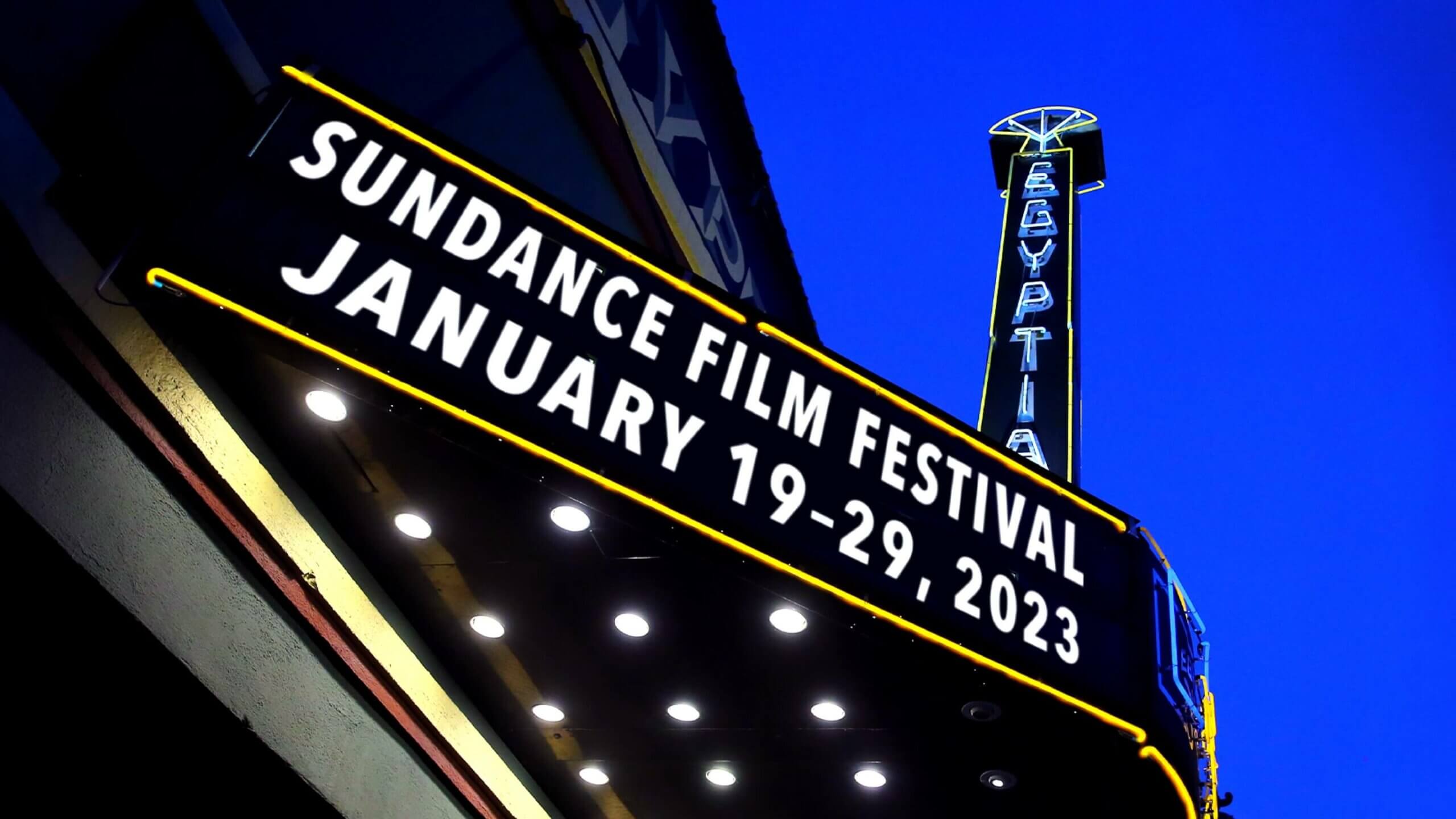Film festivals are everywhere. There’s a festival for every niche you can imagine, and every niche you can’t. Today, festivals can take many shapes and sizes, from massive industry mainstays to scrappy yet exciting startups. A savvy independent filmmaker understands the festival circuit, knowing what to apply to and how. In this article, we’ll tell you everything you need to know about film festivals.
What is a film festival?
The Film Festival, Defined
First, let’s look at what a film festival actually is, and why they’re important for filmmakers across the world.
WHAT ARE FILM FESTIVALS
What is a film festival?
A film festival is an event put on by an organization that selects and screens visual media. Historically, festivals would typically occur in a single location, at a theater or group of theaters. In recent years, however, there have been more online-only festivals.
Film festivals can be expansive and diverse, bringing together an international collection of films with varying subject matter. Other festivals focus on a single demographic or genre.
The first film festival, Venice, began in 1932. Today, the most prestigious film festivals in the world are referred to as the Big Five, and are Venice, Cannes, Berlin, Toronto, and Sundance.
Benefits of Film Festivals:
- Elevating independent cinema
- Industry networking
- Distribution potential
What is a film festival?
What Exactly Happens at a Festival?
Going to a film festival for the first time can be overwhelming. There can be so much going on that it can be difficult to decide when to do what. In other words– what do you prioritize?
The answer to this question depends on the capacity in which you are visiting the festival. If you are visiting as an audience member, then you may want to watch as many movies as possible.
If you’re a filmmaker with a film at the festival, you may want to prioritize networking with other filmmakers and industry members. If you’re a manager looking for up and coming talent, you might want to split your time doing both.

A panel at Austin Film Festival • What is a film festival?
Here are some events which typically occur at festivals:
Screenings
Ostensibly, this is the whole point of a festival. Watching the selections at a festival is almost always fun and almost always educational. Watch a block of shorts and you’ll begin to see what filmmaking trends are getting attention. Watch a low-budget international movie and you may be exposed to a culture you never knew about.

An audience at the New York Film Festival • What is a film festival?
At the most prestigious festivals, screenings can be a way to see much-hyped movies far before their release date. But be careful not to be blinded by the stars. You’ll be able to see these films later in the year, so you may want to prioritize seeing the no-budge movie that isn’t going to get significant distribution.
Mixers
If you’re a filmmaker with work at a festival, you do not want to miss the filmmaker mixers. This is where you can meet fellow filmmakers and industry members.
Typically, these mixers are limited to people with work in the festival or industry folks who have been specifically invited by the fest, so this is the ideal schmoozing environment– everyone there is someone to get to know. If the festival’s legitimate, there will also be free drinks.
Q&As
Many festivals will also host Q&A’s after particularly anticipated screenings. This session may be with the cast, the director, the writer, or someone else related to the movie. These events can be engaging, especially if you have a question for a filmmaker or didn’t understand the movie at all.

Chicago Film Festival • What is a film festival?
Panels
Panels are often equally engaging. These are events where a selection of industry professionals have a moderated talk about some hot topic. Panels may have job seminar titles like “How to Get Your First Feature Off the Ground” or “Finding Representation,” but others may skew towards state-of-the-industry laments, like “Indie Filmmaking in the Streaming Era” or “The IP Conundrum.”
A panel at Telluride • What is a film festival?
Be warned: for every enlightening panel there’s a panel that’s an out-of-touch exec bloviating about the need for filmmakers with a “unique voice.” It’s a good idea to look into who will be talking before attending.
Award Ceremonies
For some festivals, the award is getting in. But at other festivals, there are additional awards given out to stand-out official selections. These are typically announced at an award ceremony. To be honest, these events are worth going to if you aren’t a filmmaker in the running. But if you’re an award season fiend who just needs a fix of award giving and receiving, this is the event for you.
Biggest Film Festivals
How to Get Into a Film Festival
Film festivals sound great, right? Unfortunately there’s a catch– or rather, a few catches. The first is that most festivals cost money to apply to, and if you're applying to multiple festivals (which you probably should) the costs add up fast.
That brings us to the second catch: most worthwhile festivals are difficult to get into. Really difficult. These two catches combined can make a filmmaker feel like they’re flushing large amounts of money down the drain. This interview with Sundance director Kim Yutani highlights just how hard it is to get in:
Kim Yutani interview • Festival cinema
There is no guaranteed method to get into a festival, unless you are a large studio that has a movie that festival organizers are falling over each other to obtain premiere status for. Most people aren’t in this position. So let’s look at some methods that might at the very least increase your chances.
Read The Rules and Requirements
This seems obvious, but talk to any festival programmer and you’ll see that a surprising amount of filmmakers do not follow this piece of advice. Each festival has its own rules and eligibility requirements. Breaking one of these rules is a surefire way not to get in.
Use Your Premiere Status Wisely
What is premiere status, anyway? It is a marker of when and where your film has been shown before playing at a festival. Most festivals prioritize world premiere status– they want to play movies that have never been seen before.

Cate Blanchett premiered at Cannes • Largest film festivals in the world
This means applying to festivals strategically. Many filmmakers will apply to more prestigious festivals first, some of which require world premiere status (see rule number 1). Then, once said filmmakers don’t make it into those festivals, they will apply to smaller ones.
Name Talent
The chances a film is accepted into a festival increase exponentially with a recognizable actor. Recognizable actors guarantee butts in seats. Of course, this isn’t an avenue for most beginning filmmakers, but we’d be remiss to not mention it.

Damien Chazelle landed JK Simmons for his Whiplash short
Professional Packaging
Unsurprisingly, most festivals advertise by boasting their crop of selections. This means programmers’ eyes often go to films that have a catchy synopsis, professional-grade poster, engrossing trailer, etc.. You’ve already done the work for them– they have the materials that will attract audiences.
NYFF uses trailers for its trailer
Utilize Connections
This may be a bit dispiriting, but many, many films cut the line in the submission process by using connections. This may look like a producer emailing a programmer with a link to watch, or for bigger projects, it may be a festival consultant reaching out to head programmers personally.
Obviously, a connection can only do so much, but it’s a good way to stand out of the initial crowd.
Cut it Down
This is a big one for shorts. The shorter a short, the better your chances are. Programmers need short shorts to fill in a few minutes here and there, and since it’s just a few minutes, the bar is a little lower. Shorts that are over 15 minutes, however, are more difficult to program and therefore really need to be worth it.
Make a Good Movie
Sometimes a filmmaker can get so obsessed with the politics of film festivals that they forget about the simplest thing: the quality of their project. This is the hardest rule to abide by because, of course, it’s hard to make a good movie. This video gives a rundown on some of the potential makings of a good short:
How to make a good short
Let’s get more specific. Festivals in particular are looking for unique films that are saying something distinct. In other words, your movie should feel original and should have potential to stand out in a huge pile of other shorts.
Festivals are also looking for professional quality. A film that is mixed and colored professionally will make a festival look better, and thus has better chances of getting in.
Movie Festivals
Choosing the Right Festival
You’ve got all your materials ready, your film is finished and looking good. It’s time to apply to festivals. But which ones?
Scrolling through FilmFreeway (the primary destination to find and submit to festivals), one will quickly understand that there are many, many festivals out there. Do a little more research, and one will understand just as quickly that not all of them are worth entry.

The destination for festival films
The fastest way to see if a festival is worth its submission fee is to check out the festival’s past winners. Where are they now? This doesn’t just mean looking to see if a short ended up being developed into a feature. That rarely happens. Look at the writer and/or director of the short. Did they seem to get any traction out of the festival?
As we mentioned, the top film festivals are Venice, Cannes, Berlin, Toronto, and Sundance. If you think your film has a chance at one of these, they are certainly worth their submission fee.
It’s at these festivals where you are most likely to find enough attention for representation or even distribution (if it’s a feature).
The Berlin Film Festival, one of the top international film festivals in the world
These festivals are also arguably the most political, however. Because they are so coveted within the industry, industry players will throw their weight into making sure their entries are at the front of the application line. In other words, these festivals are long shots.
The next tier of festivals are the Oscar-qualifying fests. A win at one of these can make you eligible for the Academy Awards. But the reason to apply to one of these festivals isn’t necessarily to get a chance at a little gold man. Being Oscar-qualifying guarantees a certain level of prestige. These are important film festivals that are respected within the industry, such as Palm Spring International Film Festival
FilmFreeway makes it easy to find out if a festival is Oscar-qualifying. There’s a little badge next to the festival listing.
For the tier below these festivals, you need to start taking a few different factors into account when weighing whether or not the submission fee is worth it. Essentially, these festivals will most likely not guarantee you distribution or significant industry representation.
So why go to one of these lower-level festivals? First and foremost: networking with fellow filmmakers and producers. This means you should apply to festivals you know you’ll be able to go to.
A walking tour at Tribeca
Festivals you think you have a good chance of getting into are also more worth the submission fee. Say you’ve directed a horror film. Try applying to horror-specific festivals. Or maybe you made the film in Texas. Try submitting to a place like SXSW, which has a category specifically for TX-made movies.
It bears repeating: there is no way to guarantee entry into a festival. There are countless factors that are out of your control that go into a programmer’s selection process. As such, don’t get discouraged if you strike out at festivals. It doesn’t mean your film isn’t good. It just means you’ve got to find a different avenue, or you’ve got to try again.
Up Next
Best Film Festivals
Now you know the in’s and out’s of film festivals, how to get into film festivals, what happens at film festivals, etc.. Time to take a look at the specific fests to apply to. In this post, we provide you with a whole bunch of festivals worth checking out.
Up Next: Top Film Festivals →
Share your vision with elegant shot lists and storyboards.
Create robust and customizable shot lists. Upload images to make storyboards and slideshows.
